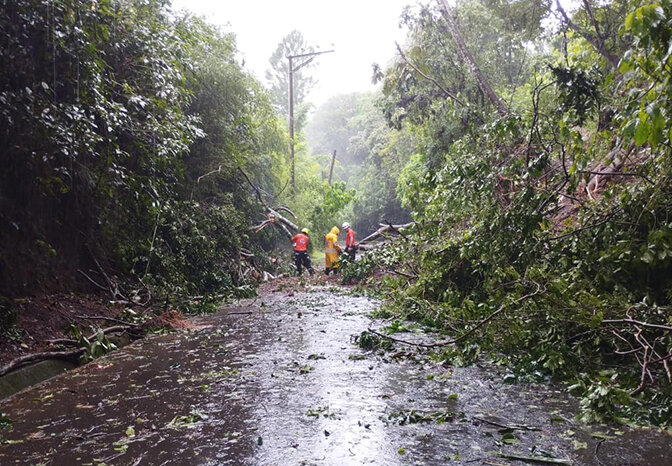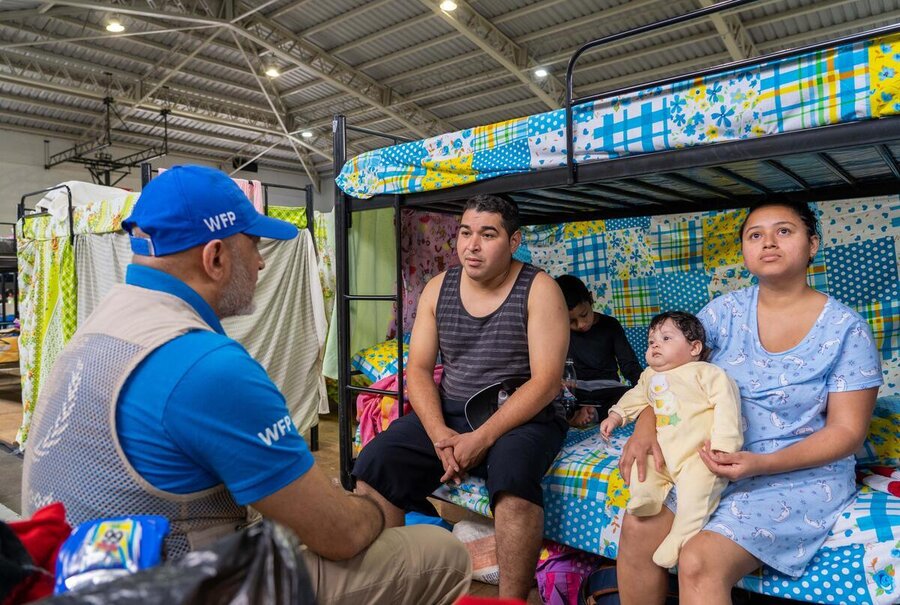
The World Food Programme is working with the Government of El Salvador to respond to devastating floods in the country that have killed 12 people, after an intense storm struck Central America over the weekend.
In the coming days, WFP plans to provide food assistance to around 2,000 people who have left their homes and found refuge in shelters in the capital San Salvador.
Over the weekend, torrential downpours lashed the Pacific coast, from Mexico to Panama - in Honduras's department of Valle, which borders El Salvador, 5,000 people have been evacuated.
The depression was upgraded on Wednesday (19 June) to tropical storm Alberto - the first named storm of the Atlantic hurricane season - which is expected to make landfall on Mexico's northeast coast.

More rain is expected above Central America in the next days, and hurricane season is expected to be particularly busy - up to 25 named storms are forecast to occur by November.
Out of these storms, up to 13 are expected to become hurricanes and up to seven will be major hurricanes - category 3 or higher, threatening lives, livelihoods, food security, infrastructure and crops.
Riaz Lodhi, WFP's Country Director in El Salvador, visited a shelter set up by the authorities in San Marcos, a suburb of the capital San Salvador, with representatives of the Government's Civil Protection department.
"We are assessing the food needs of the people who have been affected by these floods and will respond adequately in coordination with the Government's response," he said. "It is encouraging to see that government institutions have developed their capacity and have taken the driver's seat to respond to the emergency rapidly - they are providing hot meals in shelters while WFP is closely monitoring the needs of the affected communities."
Among those affected by last weekend's storm in El Salvador was married couple Christian Hernández and Yessenia Alfaro, who have two children. "Suddenly, I heard a strange noise on the roof and decided to go out. I found out that the outer wall was beginning to crumble," said Hernández at the San Marcos shelter. "I told my wife it was better for us to leave. Material things can be replaced, but our lives can't be."
In recent years, WFP has collaborated to increase the Government's emergency preparedness and response capacity, focusing on early warning systems. WFP has supported installing cameras to monitor river flows, set up and strengthened existing crisis management centres, and provided equipment to monitor weather to take preventive measures if needed.
Recurrent adverse weather conditions often affect crops, posing serious challenges to food security in El Salvador. With countries in the Pacific and Atlantic braced for disasters during the current hurricane season, WFP experts say there is an 80 percent chance of the La Niña natural weather phenomenon affecting the production of basic grains over the next six months.






